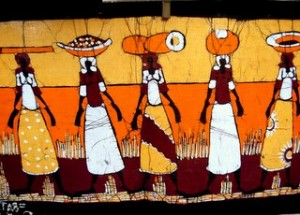Living a woman’s life
Posted on December 4, 2009.
Today at noon my daughter graduated from high school. In the afternoon, the email brought news about very dear friends.

Motherhood, sisterhood, friendship.
In Paris, the Chilean researcher, novelist and feminist Ana (Nicha) Vazquez Bronfman had died, aged 71. She was a beacon for a generation of Latin American women for her insights on identity and gender. One concept she elaborated specially was “transculturation” - the permanent construction of identities in this world of global migration. In 2006 she wrote superbly about sexuality among the elderly – transgressions and secrets, she called it.
In Rome, my friend and fellow journalist Paola Rolletta underwent the next to last chemotherapy session against breast cancer. She was jubilant to see the end of the chemical bombardment. Like antiretrovirals, chemo saves lives but is no picnic.
So, in three hours, youth, disease, health and death touched me. Motherhood and friendship. Joy and sorrow.
Email has made this vertigo possible. News travel quickly and straight to our screens, to our hearts and minds.
News from friends
These days, breast cancer appears more frequently in news from friends.
One in the Dominican Republic and another in Mozambique finished their chemo last year. Paola is finishing hers in February. In Pretoria, where I live, another friend had her second chemo last Friday.
We had lunch together today and wondered if there is more breast cancer among women now than 50 years ago, or better detection. If the rates are higher, why? Lifestyle, fast food, stress, radiation from microwaves, cellphones and all the gadgets that crowd our life?
The Harvard School of Public Health estimates that the poor will account for more than 55 percent of breast cancer deaths this year. Read a very informative story on growing cancer rates among women in the developing world here.
A recent article in the New England Journal of Medicine argues that “western” influences such as changes in diet, less exercise, delayed childbirth, families with fewer children, less breast feeding, and hormone replacement therapy are all thought to increase the risk of breast cancer for women in low-income countries.
The good news is that breast cancer, like AIDS, is becoming less and less lethal, if detected and treated early.
I am so proud of my cancer-survivor friends. They have worn their baldness as a badge of courage and have acquired new wisdom.
And while we age and think about breast cancer, a younger generation moves closer to adulthood.
I wondered how to name and save this rambling text in my laptop. And I wrote - BLOG: LIFE.

